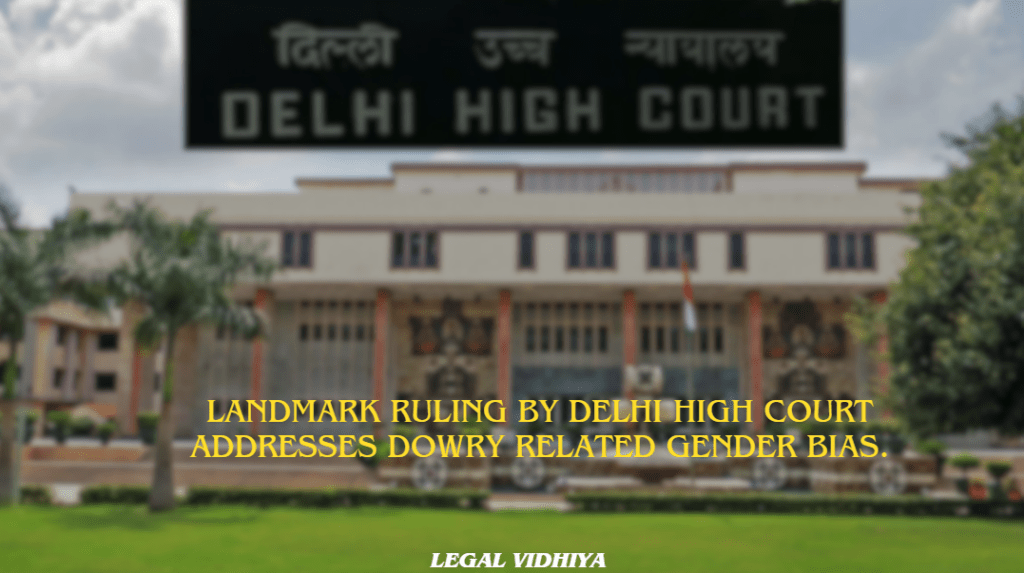
In a “significant ruling” addressing a dowry death case, the Delhi High Court has brought attention to the “prevalence of regressive mindsets” associated with “insatiable dowry demands,” framing them as a “broader societal concern.” The case involved the alleged “harassment and suicide” of a daughter-in-law over the birth of female children.
Justice Swarana Kanta Sharma emphasized the necessity of educating perpetrators about the “genetic science governing the determination of a child’s gender.” The court clarified that it is the “combination of the father’s chromosomes, not the daughter-in-law’s,” that dictates the birth of a daughter or son.
The court pointed out the “disregard for genetic science,” explaining the involvement of “X and Y chromosomes in determining gender.” It highlighted instances where such “scientific principles were overlooked,” leading to biased accusations against women for giving birth to daughters.
Justice Sharma, in “dismissing a bail plea filed by the husband accused of torturing his wife for dowry,” addressed the “broader societal implications.” The court revealed having dealt with numerous cases involving “harassment, nagging, and suicide” related to dowry deaths, specifically when victims were targeted for giving birth to daughters.
The ruling emphasized the “challenges faced by married women,” asserting that their “intrinsic value and dignity should not be contingent upon their parents’ ability to meet exorbitant financial demands from in-laws.” The court strongly condemned the “prevailing regressive mindsets,” stating that a “woman’s worth should not be tied to material considerations like dowry.”
Highlighting the “contradiction with principles of equality and dignity,” the court observed that the “notion of a woman’s value diminishing due to unfulfilled dowry expectations reflects deep-seated bias and discrimination against women.” Such expectations were criticized for contributing to an “environment where women are objectified and reduced to transactions.”
In conclusion, the court expressed “dismay over incidents like the one in question,” emphasizing the “disheartening markers on the path of equal societal advancement for women.” The “dismissal of the bail application” was justified by the “grave and serious nature of the allegations,” with the court declaring that such offenses should be considered “unacceptable to a conscientious society.”
The ruling sends a powerful message against “regressive practices,” advocating for “gender equality and women’s empowerment” while underscoring the importance of “education and societal awareness.”
CASE NAME: HARDESH SHARMA V. STATE
NAME: GAYATHRI MANOJ, BBA, LLB(HONS), PRESIDENCY UNIVERSITY, BANGALORE, INTERN UNDER LEGAL VIDHIYA.
Disclaimer: The materials provided herein are intended solely for informational purposes. Accessing or using the site or the materials does not establish an attorney-client relationship. The information presented on this site is not to be construed as legal or professional advice, and it should not be relied upon for such purposes or used as a substitute for advice from a licensed attorney in your state. Additionally, the viewpoint presented by the author is of a personal nature.




0 Comments